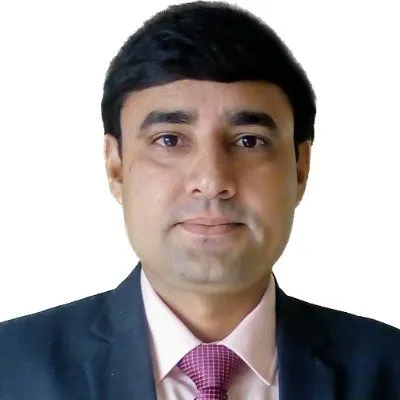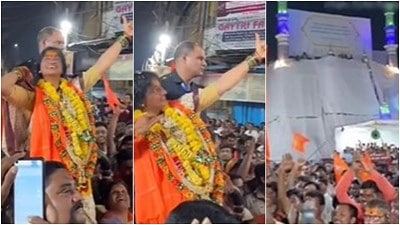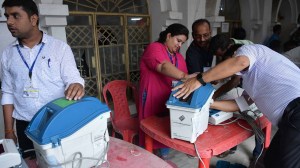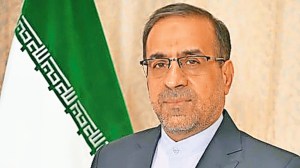- India
- International
India calls for developed nations to assist developing ones
The call has been given in India’s Second Voluntary National Review of Sustainable Development Goals (SDGs) report presented to the United Nations High-level Political Forum on Monday.
 The report was presented by NITI Aayog Vice Chairman Dr Rajiv Kumar to the High-level Political Forum in a virtual meeting. (Express file photo)
The report was presented by NITI Aayog Vice Chairman Dr Rajiv Kumar to the High-level Political Forum in a virtual meeting. (Express file photo)
Highlighting “challenges” thrown up by the Covid-19 outbreak, India has called upon developed countries to provide financial assistance to developing nations for controlling pandemics such as this.
The call has been given in India’s Second Voluntary National Review of Sustainable Development Goals (SDGs) report presented to the United Nations High-level Political Forum on Monday.
“India reiterates that the developed countries have an intrinsic obligation to provide financial assistance to the developing countries, especially for global public goods such as climate change mitigation and control of pandemics, such as COVID-19, so that they can fully achieve the SDGs,” says the report titled “Decade of Action: Taking SDGs From Global to Local.”
The report was presented by NITI Aayog Vice Chairman Dr Rajiv Kumar to the High-level Political Forum in a virtual meeting.
“The COVID-19 pandemic has, additionally, thrown open a sea of challenges that are not bound by either geography or the level of development. India is at the forefront in the call for joint global action to address the COVID-19 pandemic,” said the report.

Deliberating on the “SDG-17” that is about “partnerships for the goals”, the report highlighted the need for international cooperation for curbing illicit financial flows.
On India’s response to Covid-19, the report said, “The government is leading a multi-faceted effort to revamp the public health infrastructure, protect jobs and livelihoods, ratchet up various economic sectors and break the siege of the pandemic.”
The report also highlighted the need for additional funding to achieve the goal of sustainable development. Quoting a study conducted by the government in partnership with the International Monetary Fund (IMF), the report said five sectors — education, health, electricity, roads and water and sanitation — will require additional funding for “significant” progress.
The report also mentioned the “vulnerabilities faced by the migrants and the urban poor” in the wake of the pandemic.
“The recent COVID-19 crisis has compounded the vulnerabilities faced by the migrants and the urban poor, leading to the announcement of a well-designed economic package and relief for both labour and SMEs by the Government of India and various State Governments,” it said.
The UN has set 17 Sustainable Development Goals to be achieved by 2030. These are No Poverty; Zero Hunger; Good Health and Well-being; Quality Education; Gender Equality; Clean Water and Sanitation; Affordable and Clean Energy; Decent Work and Economic Growth; Industry, Innovation and Infrastructure; Reduce Inequalities; Sustainable Cities and Communities; Responsible Consumption and Production; Climate Action; Life Below Water; Life on Land; Peace, Justice and Strong Institutions; and Partnerships for the Goals.
Member countries are required to apprise about the progress in the form of Voluntary National Review reports. They present these reports at the High-level Political Forum, mandated to review the progress on SDGs.
This time, the NITI Aayog has prepared the report by engaging “with sub-national and local governments, civil society organizations, local communities, people in vulnerable situations and the private sector”, a statement said.
Apr 18: Latest News
- 01
- 02
- 03
- 04
- 05







































